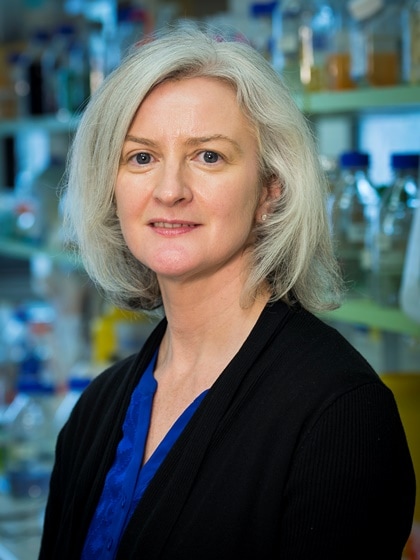
Improving treatment and limiting side effects for metastatic breast cancer
Published: 10/7/19 11:23 PM

Suzanne Cutts
Breast cancer is a leading cause of cancer-related deaths in women. Most of these deaths result from the spread of cancer (metastasis) to distant tissues such as lung, brain and bone. This can occur either at an early stage, prior to surgical removal of the primary tumour, or at a later stage of disease.
To address metastatic disease, NBCF funded researcher Dr Suzanne Cutts has identified a treatment which changes how the commonly used anti-cancer drug doxorubicin works. Doxorubicin is a member of the anthracycline class of drugs that causes DNA damage and effectively kills cancer cells. In combination with other drugs, formaldehyde-releasing prodrugs (FRPs), doxorubicin becomes more potent by binding even stronger to DNA and killing even more cancer cells.
To date Dr Cutts and her research team have shown that this combination treatment is effective at killing cancer cells grown in culture. In addition, it dramatically improves the potency of doxorubicin in human breast tumours that have been implanted in mouse models.
Despite its anti-cancer benefits, doxorubicin therapy can also lead to heart damage due to its effect of destroying heart cells. To overcome this, Dr Cutts’s combination therapy has been developed in such a way to protect heart cells, making it a promising treatment for clinical application.
This much-needed improvement in treatment for women with metastatic breast cancer could mean better prognosis and greatly enhanced quality of life during treatment, whilst limiting harmful side effects.

